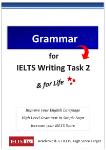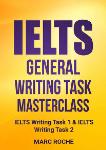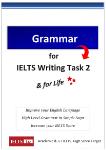Text
Volume II
Pages 102 - 193
Telegram: @ieltstarget7
Telegram: @ieltstarget7
Telegram: @ieltstarget7
Telegram: @ieltstarget7
Telegram: @ieltstarget7
Telegram: @ieltstarget7
Telegram: @ieltstarget7
Telegram: @ieltstarget7
Telegram: @ieltstarget7
Telegram: @ieltstarget7
Telegram: @ieltstarget7
Telegram: @ieltstarget7
Telegram: @ieltstarget7
Telegram: @ieltstarget7
Telegram: @ieltstarget7
Telegram: @ieltstarget7
Telegram: @ieltstarget7
Telegram: @ieltstarget7
Telegram: @ieltstarget7
Telegram: @ieltstarget7
Telegram: @ieltstarget7
Telegram: @ieltstarget7
Telegram: @ieltstarget7
Telegram: @ieltstarget7
Telegram: @ieltstarget7
Telegram: @ieltstarget7
Telegram: @ieltstarget7
Telegram: @ieltstarget7
Telegram: @ieltstarget7
Telegram: @ieltstarget7
Telegram: @ieltstarget7
Telegram: @ieltstarget7
Telegram: @ieltstarget7
Telegram: @ieltstarget7
Telegram: @ieltstarget7
Telegram: @ieltstarget7
Telegram: @ieltstarget7
Telegram: @ieltstarget7
Telegram: @ieltstarget7
Telegram: @ieltstarget7
Telegram: @ieltstarget7
Telegram: @ieltstarget7
Telegram: @ieltstarget7
Telegram: @ieltstarget7
Telegram: @ieltstarget7
Telegram: @ieltstarget7
Telegram: @ieltstarget7
Telegram: @ieltstarget7
Telegram: @ieltstarget7
Telegram: @ieltstarget7
Telegram: @ieltstarget7
Telegram: @ieltstarget7
Telegram: @ieltstarget7
Telegram: @ieltstarget7
Telegram: @ieltstarget7
Telegram: @ieltstarget7
Telegram: @ieltstarget7
Telegram: @ieltstarget7
Telegram: @ieltstarget7
Telegram: @ieltstarget7
Telegram: @ieltstarget7
Telegram: @ieltstarget7
Telegram: @ieltstarget7
Telegram: @ieltstarget7
Telegram: @ieltstarget7
Telegram: @ieltstarget7
Telegram: @ieltstarget7
Telegram: @ieltstarget7
Telegram: @ieltstarget7
Telegram: @ieltstarget7
Telegram: @ieltstarget7
Telegram: @ieltstarget7
Telegram: @ieltstarget7
Telegram: @ieltstarget7
Telegram: @ieltstarget7
Telegram: @ieltstarget7
Telegram: @ieltstarget7
Telegram: @ieltstarget7
Telegram: @ieltstarget7
Telegram: @ieltstarget7
Telegram: @ieltstarget7
Telegram: @ieltstarget7
Telegram: @ieltstarget7
Telegram: @ieltstarget7
Telegram: @ieltstarget7
Telegram: @ieltstarget7
Telegram: @ieltstarget7
Telegram: @ieltstarget7
Telegram: @ieltstarget7
Telegram: @ieltstarget7
Telegram: @ieltstarget7
Telegram: @ieltstarget7
Telegram: @ieltstarget7
Telegram: @ieltstarget7
Telegram: @ieltstarget7
Telegram: @ieltstarget7
Grammar for IELTS Writing Task 2
Copyright © Elizabeth Ferguson 2020
All rights reserved. No part of this e-book may be reproduced, distributed or transmitted in any
form or by any means without prior written permission of the copyright owner.
www.ieltsliz.com
Extra Pages
This is a continuation of the Articles Chapter which is found earlier in Volume II.
Concepts of Specific & General
We have seen in section 2 and section 3 about Articles that we mainly use the when
we are referring to something specific and we use no article when we refer to
something in general. For example:
Some people think the language of a country can only be learned properly by
living there.
In this case, the language refers to the specific language of the country referred to.
Holidays, such as Halloween, are usually enjoyed by all young children.
In the sentence above, the word holidays is referring to all holidays, not specific
holidays. When we refer to something in general with a countable noun, we use the
plural form without an article.
So far, this rule seems simple and easy to follow. However, understanding what is
specific and what is general is not always easy to grasp. Take a look at the following
examples:
1. People with a criminal record often find it difficult to find a job after they are
released.
In Sentence 1, the word people is not referring to all people, but to people with a
criminal record. If this is the case, why does it not use the article the for a specific
group of people? Why does it not require the?
The subject in Sentence 1 is a noun phrase. It is referring to all people who have a
criminal record. This means it is referring in general to that whole group. For this
reason, no article is used and the main noun, which is countable, is plural.
You can learn more about noun phrases on pages 20 - 31.
2. The people with a criminal record who came to the interview showed a wide
range of skills and experience.
In Sentence 2, the subject is also a noun phrase. However, this noun phrase also
contains a clause. Below you will see the defining relative clause underlined:
The people with a criminal record who came to the interview
Articles: Section 4
IELTS Liz
Telegram: @ieltstarget7
Grammar for IELTS Writing Task 2
Copyright © Elizabeth Ferguson 2020
All rights reserved. No part of this e-book may be reproduced, distributed or transmitted in any
form or by any means without prior written permission of the copyright owner.
www.ieltsliz.com
Extra Pages
The clause in Sentence 2 shows that we are not referring to all people with a criminal
record. We are only referring to a specific group of people with a criminal record (the
ones who attended the interview). For this reason, the article the is required as it is a
specific group.
You can learn more about defining relative clauses on pages 70 - 82.
3. Cars in urban areas are largely responsible for most of the air pollution.
In Sentence 3, the subject is a noun phrase: cars in urban areas. This means it is
referring in general to all cars in urban areas, not to specific cars in urban areas.
4. The cars with the best mileage usually have the highest price.
In Sentence 4, by contrast, we are not talking about cars in general but about a
specific group of cars, namely those which have the best mileage. This sentence
could be paraphrased as follows:
The cars which have the best mileage are usually the ones which have the
highest price.
5. People fleeing war-torn countries should be guaranteed sanctuary.
In Sentence 5, no article is used because it is referring in general to all people coming
from a war-torn country.
6. The people fleeing war-torn countries should be guaranteed sanctuary.
The use of the article the in Sentence 6 is based on the meaning of the writer. By
using the article the, the writer is putting people coming from war-torn countries
into a specific category. This is mostly likely because the writer is differentiating that
group of people from another wider group of people coming into the country who
are not from war-torn countries. This means the use of the article the is purposely
used to divide these specific people from the general group of people coming into
the country.
While this may seem confusing, you must take context into consideration. After all,
we use language to communicate meaning and therefore context counts towards
meaning and influences grammar. It is most likely that this sentence would be found
in an article about people coming into a country seeking sanctuary. The paragraph
would then separate people from war-torn countries from the wider group. This
would make them a specific group of people.
Example sentences in context:
There is an increasing number of people requesting to enter this country. The
reasons for their application are varied. Some want to give their children a
IELTS Liz
Telegram: @ieltstarget7
Grammar for IELTS Writing Task 2
Copyright © Elizabeth Ferguson 2020
All rights reserved. No part of this e-book may be reproduced, distributed or transmitted in any
form or by any means without prior written permission of the copyright owner.
www.ieltsliz.com
Extra Pages
better education, some just want to find a decent job and others want to
escape from their war-torn country. Obviously, the people fleeing war-torn
countries should be guaranteed sanctuary. With nowhere else to turn,
these people must be allowed entry.
To continue learning about Articles, return to page 159.
IELTS Liz
Telegram: @ieltstarget7
End Volume II
Telegram: @ieltstarget7










































































































